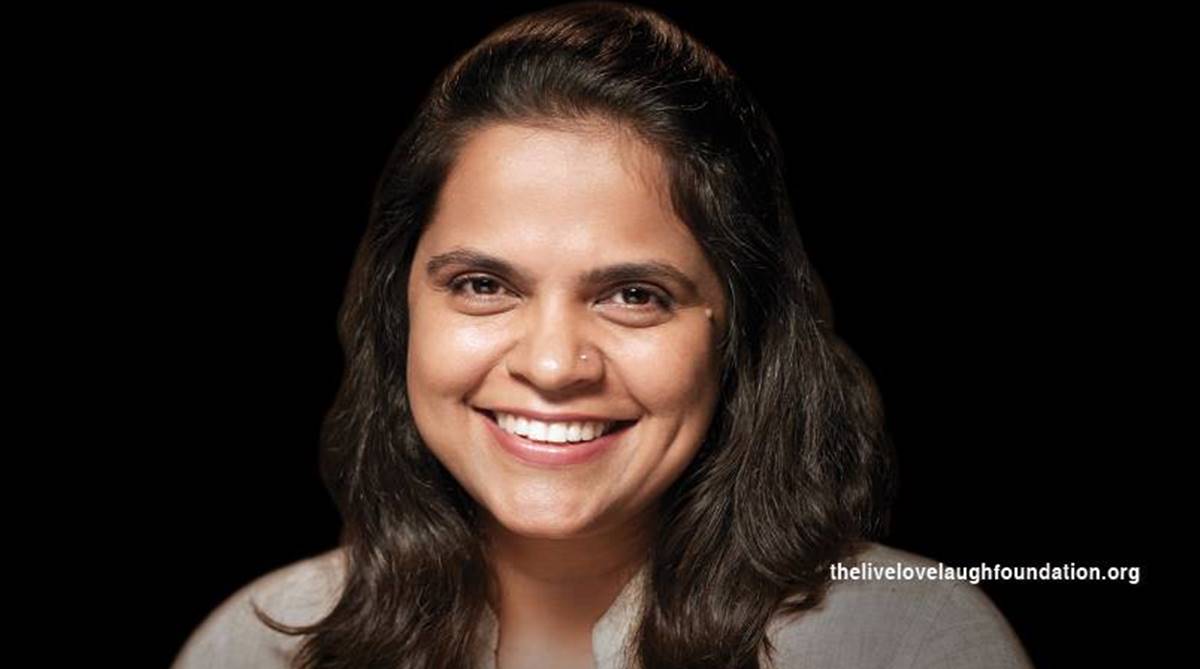To make people aware about mental well-being thereby eradicating the deep-rooted social prejudices towards mental health, The Live Love Laugh Foundation (TLLLF) launched the #NotAshamed campaign recently. Being a real life depression survivor, journalist Sandhya Menon played an active part in the campaign. She narrated her personal struggles with mental illness and exhorted the fact that depression is not something to be ashamed of.
The news of her being diagnosed with mental illness in 2012 made her laugh. But apparently, that’s how most of the people react to things they don’t understand. That was not the end; she was further detected with borderline personality disorder. Nothing was going right and there was a time when she felt that everything was spinning way out of her control. She even attempted suicide not just once but twice in a year. As a part of the campaign, she endeavours to reach out to all those who went through a similar share of suffering and tell them that though there’s no guarantee to make things better, all one can do is to try.
Advertisement
Excerpts from an interview with Sandhya Menon:
Q. How did you come across The Live Love Laugh Foundation?
I came across the foundation when I saw an advert about the benefits of therapy, about a year ago.
Q. Kindly share your association with the #NotAshamed campaign by the foundation.
I have been writing and talking about mental illness and mental health since 2014. It was in this context that the foundation got in touch with me about the #NotAshamed campaign. It ties in perfectly well with my own desire to talk about mental illnesses and remove the stigma around them.
Q. When did you discover yourself into the dark pit of depression or mental illness?
I object to it being called a “dark pit”. To answer the question, I was diagnosed in 2013 with bipolar disorder (BPAD) and borderline personality disorder (BPD). I had a breakdown post a very stressful time in my life. Since then I have learnt that I am not very resistant to stress and need to keep things in some semblance of order around me.
Q. What were the challenges you faced during the tough phase?
I have an answer that is as big as a blog post. It would be safe to say that mental illness is as debilitating to your life as cancer is to your body. It isn’t easy to spot, in yourself or in someone else, because we all have different ideas of what is normal. Perhaps there is no normal, but I am sure there is happy, there is peace, there is love, there is gratitude and there is contentment. If you find none of these in your life for long periods, then you need some level of help.
Q. How did you overcome the negative chain of thoughts?
There is no overcoming the negative train of thoughts. I don’t think “thinking positive” is any measure of mental good health. It is all about constant thought management. With the help that therapy provides — talking, as well as tools such as a thought record and breathing exercises — I have managed to become more aware: that is all. As long as I am aware of what my thoughts are doing to me I am able to manage my emotions and therefore, understand how I must deal with myself.
Q. How do you feel post therapy? Do those moments keep returning or are you totally past it?
As established previously, life now is about managing regressive thought processes, irrational fears and anxieties and clearing up my thoughts. Yes, I am less anxious now, have more control over my temper, more empathy for the people in my life, and a little more understanding of what it might be like to deal with a person as difficult as me. So therefore, life is kinder and quieter at present but I also work at keeping it simple and uncomplicated.
Do I have suicidal thoughts? Yes, regularly, especially when the stress and
anxiety and distress is at its peak. Have I attempted suicide after my second time? No. It’s been three to four years since my last attempt and while I think I will never again try to kill myself, I regularly have suicidal ideation. But I can now reason myself out of it instead of feeling it fully like I usually do and thinking that is the only option left to me.
Q.Any message for those fighting depression or mental illness
Go to therapy. There’s a list of therapists on the TLLLF website. Change your therapists till you find someone you are comfortable with. If you can’t help yourself without therapy, then you shouldn’t be ashamed to get someone you trust to help you. If you think you can aid yourself, and then read up as much as you can.
Also, spend a lot of time with yourself. This is difficult but invaluable. No phone, no book, no Internet. Just some time with yourself reflecting and understanding what is going on in your mind. Learn that your mind can be trained. It’s a very hard work but it can be trained. Never use your mental illness to get what you want











